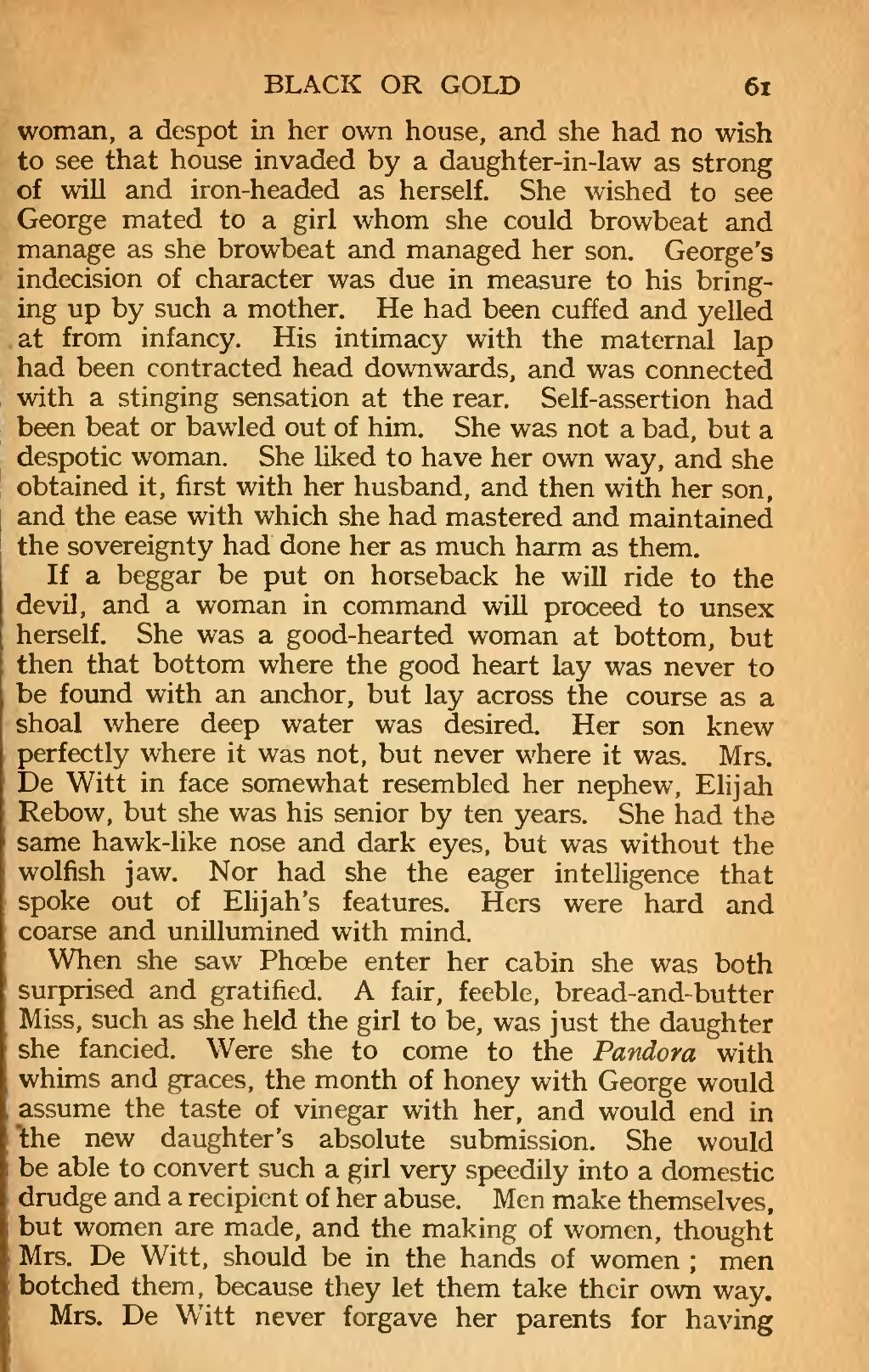woman, a despot in her own house, and she had no wish to see that house invaded by a daughter-in-law as strong of will and iron-headed as herself. She wished to see George mated to a girl whom she could browbeat and manage as she browbeat and managed her son. George's indecision of character was due in measure to his bringing up by such a mother. He had been cuffed and yelled at from infancy. His intimacy with the maternal lap had been contracted head downwards, and was connected with a stinging sensation at the rear. Self-assertion had been beat or bawled out of him. She was not a bad, but a despotic woman. She liked to have her own way, and she obtained it, first with her husband, and then with her son, and the ease with which she had mastered and maintained the sovereignty had done her as much harm as them.
If a beggar be put on horseback he will ride to the devil, and a woman in command will proceed to unsex herself. She was a good-hearted woman at bottom, but then that bottom where the good heart lay was never to be found with an anchor, but lay across the course as a shoal where deep water was desired. Her son knew perfectly where it was not, but never where it was. Mrs. De Witt in face somewhat resembled her nephew, Elijah Rebow, but she was his senior by ten years. She had the same hawk-like nose and dark eyes, but was without the wolfish jaw. Nor had she the eager intelligence that spoke out of Elijah's features. Hers were hard and coarse and unillumined with mind.
When she saw Phœbe enter her cabin she was both surprised and gratified. A fair, feeble, bread-and-butter Miss, such as she held the girl to be, was just the daughter she fancied. Were she to come to the Pandora with whims and graces, the month of honey with George would assume the taste of vinegar with her, and would end in the new daughter's absolute submission. She would be able to convert such a girl very speedily into a domestic drudge and a recipient of her abuse. Men make themselves, but women are made, and the making of women, thought Mrs. De Witt, should be in the hands of women; men botched them, because they let them take their own way.
Mrs. De Witt never forgave her parents for having
